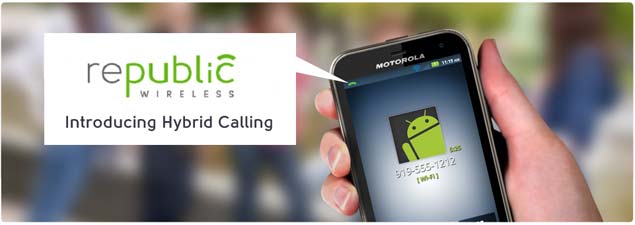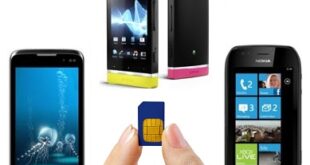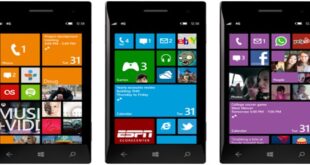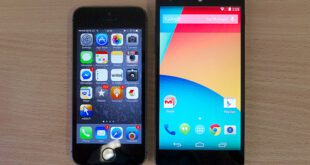Most mobile devices come equipped with both a wireless carrier radio (3G, 4G) and an integrated Wi-Fi radio. This allows mobile device users to take advantage of home or public network access while using data services on a mobile phone. The basic reason for using Wi-Fi on a mobile phone, in addition to standard cellular service, is to conserve data usage.
Cell phone network to use data: Every time a mobile phone, accesses a cell phone network to use data the user is charged, and the amount of data processed is recorded. A few mobile plans allow for unlimited data and streaming, but realistically most mobile device users opt to choose a lower data plan that only allows for a certain amount of data to be used each month.
Consumers often take advantage of wireless access points and Wi-Fi networks via a mobile device as a regular computer or laptop would allow, and thus can use less data from a cellular carrier service.
Wi-Fi connection limitation: Unfortunately, the actions that a mobile device can perform over a Wi-Fi connection are limited. Mobile device users cannot make or receive calls over a wireless internet or broadband connection without the help of third party VoIP software and applications, like Skype.
VoIP software requires management of a second phone number separate from the user’s mobile device number, and can even require additional payment for usage. Paying for a mobile device service through a carrier in combination with paying for usage of a separate third-party VoIP service can get very expensive, and is not at all economical.
Page Contents
Republic Wireless Will Change the Mobile Service Industry

Republic Wireless is going to change the mobile device market and is offering the first truly mobile Wi-Fi solution. There is only one device available currently, the LG Optimus, but it natively supports Wi-Fi phone calling on the phone.
Republic wireless advantages for mobile
- When users are in the range of a Wi-Fi network, the phone automatically uses the wireless signal to make and receive calls, text messages and stream data.
- If the related Wi-Fi network drops out of range or one is not available, the phone will automatically swap to Republic’s cellular service.
- There are no additional fees for use of this integrated Wi-Fi feature. Instead, consumers pay a regular membership fee that entitles them to unlimited usage, data, and text messages. Republic Wireless claims that because of this unique setup, there are no overages, contracts or early termination fees.
- Consumers pay $199 for the first month (plus tax) in order to receive the custom equipped LG Optimus phone, and then pay $19 per month (plus tax) to subscribe to the Republic Wireless service.
- Regardless of data usage (over Wi-Fi or cellular signals) customers always pay the flat fee of $19. Members are under no obligations and may leave, or disconnect service at any time without incurring any additional fees.
- Republic Wireless is offering a very innovative service, one that will ultimately change the entire mobile device industry- provided the software and hardware works as it should. This could be a viable and inexpensive alternative to standard wireless carrier contracts, and high priced mobile phone bills. Not to mention, the applications for such a service are endless.
For instance, when traveling overseas, mobile device usage would be significantly lower thanks to the joint use of Wi-Fi networks. Consumers traveling abroad would use less cellular data, and thus would have lower, and more cost-effective, mobile service bills.
The reason the Republic Wireless service is so cheap is because it doesn’t cost anything extra to utilize surrounding Wi-Fi networks to make and receive calls; most businesses and locations offer free Wi-Fi support anyways. The unique hybrid Wi-Fi device will no longer depend on wireless carrier service; thus it will use less data.
Only Major Downside Republic Wireless Mobile Service
The only major downside to such a unique service is that mobile device carriers will not like this approach to wireless consumer support. In fact, we may even see a few wireless carriers work to block certain devices that utilize hybrid calling support, or charge additional service fees to use such devices. The main reason that mobile carriers will strongly combat such a service like the one Republic Wireless is offering, is because they will lose money in the long run.
Even so, if wireless carriers start to block certain mobile devices and phones (Republic aims to release more compatible phone models later on) then consumers can still take advantage of wireless hotspot and Wi-Fi network support. There is no way to block out such support, because Wi-Fi networks are offered through standard internet service providers and not wireless carriers.
How Republic Wireless Will Change the Mobile Service Industry?
We already see wireless carriers blocking mobile tethering and wireless hotspot use so that customers are required to pay extra for such features, when in the past those features used to be free of charge. If mobile carriers are willing to charge extra for something as simple as device tethering, why wouldn’t they charge additional fees for use of a hybrid device with their service, or block them altogether?
The answer is that nothing would stop wireless carriers from doing so, and it’s a matter of time before they will.
Of course, wireless internet is not available everywhere, and this is where the effectiveness of the service could falter. If Republic Wireless cellular radio signals aren’t available in the same areas that Wi-Fi is also scarce, customers could end up with blackout pockets where they have absolutely no signal at all. Potential latency issues and call dropping could even occur over a Wi-Fi connection if the bandwidth of the connection is low. This simply means that consumers would experience the same issues with a hybrid calling service as a cellular service has.
Wireless hybrid support: There is no doubt that this innovative approach to wireless device support will be the next major change in the mobile industry. Wireless hybrid support has the potential to lower service costs, eliminate contracts and additional hidden costs, and allow for even greater mobile freedom.
Think about how often we see Wi-Fi connectivity boosted indoors while wireless device signal suffers? Imagine being able to utilize a Wi-Fi signal natively, anywhere and at any time. It’s not hard to see why hybrid wireless devices are the future that mobile consumers need.
 Tricks Window Technology Zone – Complete Technology Package for Technology News, Web Tricks, Blogging Tricks, SEO, Hacks, Network, Mobile Tricks, Android, Smartphones etc.
Tricks Window Technology Zone – Complete Technology Package for Technology News, Web Tricks, Blogging Tricks, SEO, Hacks, Network, Mobile Tricks, Android, Smartphones etc. 


